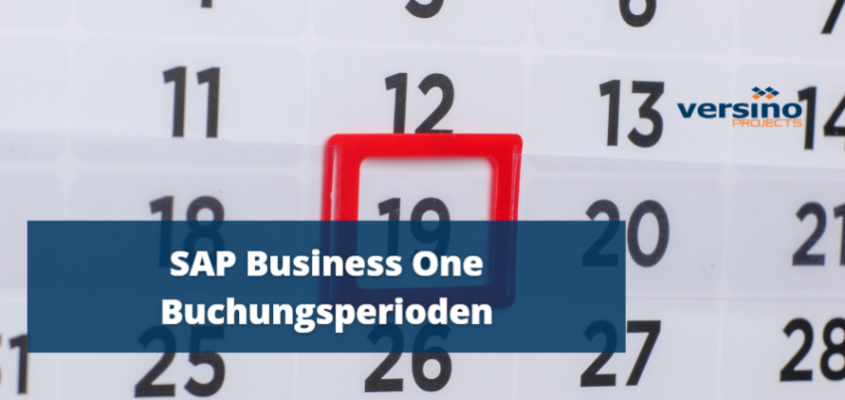The SAP Business One posting periods play an important role in the finance. They make it easier to organise, record and document the financial transactions of a period. This article explains posting periods in SAP Business One, how they work and the benefits they offer, and how they are processed in SAP B1.
What are posting periods in SAP Business One?

Posting Periods in SAP Business OneIn SAP Business One, data entry periods are defined time intervals in which you can Financial transactions recorded. A posting period can be a month, a quarter or another period of time. Each booking period is defined by a specific time frame and can be made individually or in a series.
Why are posting periods so important in SAP B1?
During an accounting period, all business transactions, such as billsvouchers or bank entries are recorded. At the end of the accounting period, these business transactions are summarised and posted in accounting. The result of the posting is usually presented in the form of account statements or a balance sheet.
The accounting period is important in bookkeeping to have an accurate overview of a company's finances and to meet tax obligations. Bookkeeping must adhere to certain deadlines and rules in order to have a proper accounting to be ensured. However, this also means that bookings outside the booking period cannot be recorded. Also, booking periods generally cannot be changed retroactively.

How can I create accounting periods with SAP Business One?
- Follow the steps below to create an accounting period in SAP Business One:
- Select "Accounting" from the "Finance" menu.
- Select "Booking periods" from the drop-down menu.
- To create a new accounting period, click on "New".
- Enter a descriptive name for the accounting period. When doing so, enter the start and end dates for the accounting period.
How to change a posting period in SAP B1?
To change the periods in SAP Business One, follow the steps above.
- Select Accounting from the Finance menu.
- From the drop-down menu, select the option "Booking periods".
- Select the accounting period you want to change.
- Select "Edit" Change the period or the name of the accounting period.
- Save the changes.
How can I edit an accounting period from SAP Business One?

Use the following SAP Business One functions to edit accounting periods:
- Open accounting periods: Displays a list of all the accounting periods created.
- New posting period creates a new period for the entry.
- Edit: Allows the modification of an existing booking period.
- DeleteDeletes an existing booking period.
- Copy: this function duplicates an existing accounting period.
- That Lock of a period prevents transactions from being entered for that period. Enables editing of an existing accounting period.
- Unlock: Unlocks a booking period that was previously locked.
Booking period: Frequently asked questions

SAP Business One-faster, simpler, clearer!

Input computer processing with human intelligence

SAP Business One - Booking of shipping & freight

SAP Business One and DATEV - Synchronised

Budgets in SAP Business One


